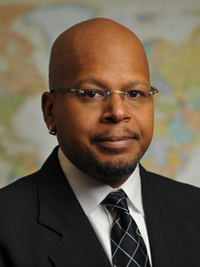
“The leaked U.N. report is very consistent with our research (co-author is Allan Stam) that the Kagame-led government engaged in systematic violent activity in 1994,” Davenport says. “They invaded the sovereign nation of Rwanda from Uganda and undermined the Arusha accords. There is evidence they may have participated in the assassination of the Rwandan president that reignited the conflict in Rwanda and they pursued those who engaged in violence in Rwanda in the Democratic Republic of the Congo but consistently overshot where most estimated that these perpetrators were located so that they could extract resources from the country.”
According to Davenport, Kagame is outraged, because the whole legitimacy of the Rwandan government is based on the ‘Hotel Rwanda’ premise that they stopped violence, not caused it.
“They can’t allow the idea that they were involved in the violence to be accepted,” Davenport says. “Kagame has been outraged by anyone who questions the accepted narrative, calling them ‘genocide deniers.’ He has been very effective about shutting down all discussion, but it is increasingly hard to deny that human rights in the country have been limited, as the civil society has essentially been purged of all political rivals.”
Davenport focuses on political conflict, violence and violations of human rights, including genocide, politicide, mass killing, torture, beatings, arrests for political purposes and oppression by governments. He uses statistical research, ethnography and other approaches to examine these issues in Rwanda, India, Northern Ireland and the United States.
Davenport directs two research projects: Save Our States and the Radical Information Project and has directed the Minorities at Risk Data Project, which monitors and analyzes the status and conflicts of hundreds of politically active ethnic groups throughout the world. He has held visiting appointments at the Transitional Justice Institute at the University of Ulster, Ireland; the Center for Advanced Study in the Behavioral Studies at Stanford University; and the Peace Research Institute in Oslo, Norway.
Davenport’s publications include “State Repression and the Domestic Democratic Peace,” “Repression and Mobilization” and “Paths to State Repression: Human Rights Violations and Contentious Politics.”
Media Advisory: Davenport’s comments may be used in whole or in part. He is available for interviews and can be reached at 574-631-0361 begin_of_the_skype_highlighting 574-631-0361 end_of_the_skype_highlighting or cdavenp1@nd.edu.

No comments:
Post a Comment